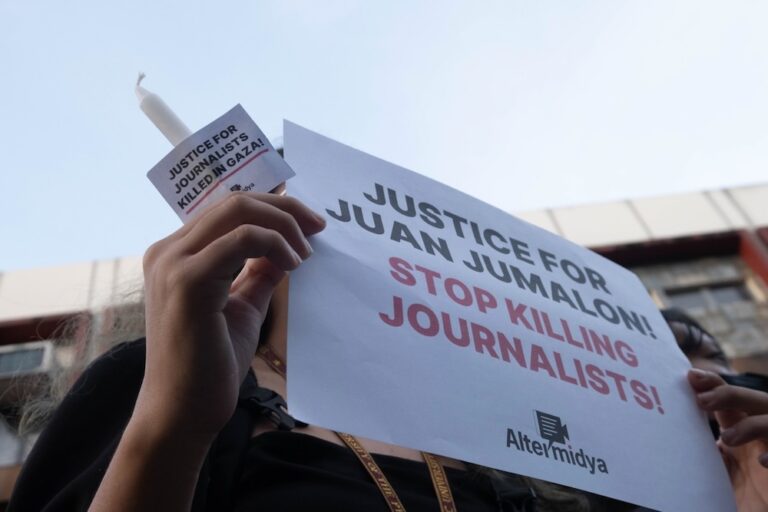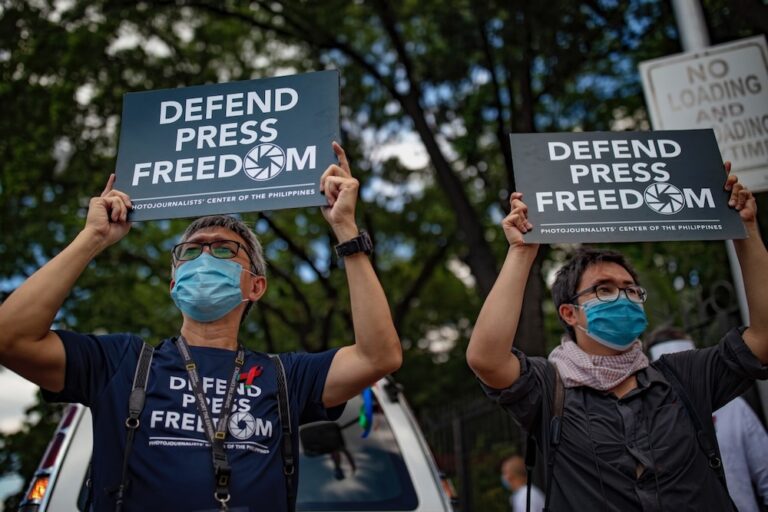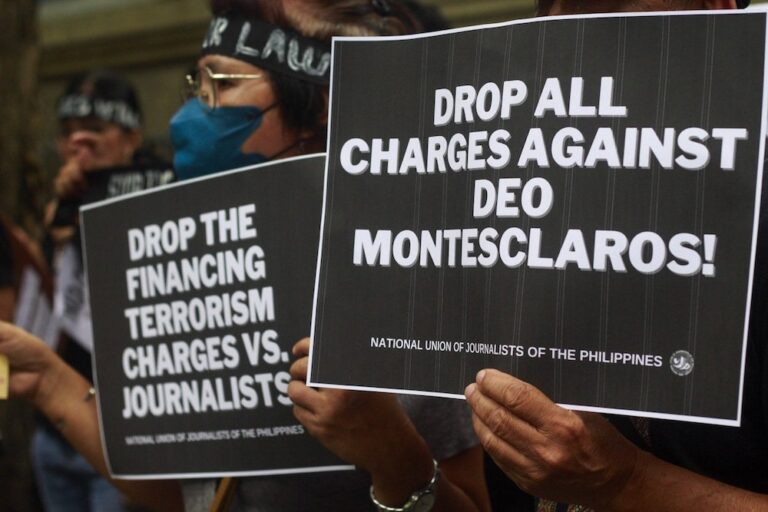Marking 500 days since the November 2009 massacre of 58 people, including 32 journalists and media workers in Mindanao, the organisations expressed their outrage at the continuing delays in prosecuting key suspects.
(IFJ/IFEX) – April 7, 2011 – International press freedom organisations today called on Philippine President Benigno Aquino III to direct his administration to provide the necessary resources and support to ensure the swift prosecution of suspects accused of murdering journalists and media workers.
Marking 500 days since the November 2009 massacre of 58 people, including 32 journalists and media workers, in the southern island of Mindanao, Philippine and international organisations jointly expressed their outrage and deep concerns at the continuing delays in prosecuting key suspects in the Mindanao massacre and other media killings in the Philippines.
“The atrocity in Ampatuan Town, Maguindanao, on 23 November 2009 occurred in the context of a decades-long culture of impunity for violence against journalists and other human rights defenders in the Philippines,” the joint statement by the international partnership group said.
“President Aquino and his administration must show a firm commitment to end impunity by ensuring that perpetrators of violence against journalists are brought to justice.”
Trials are under way for 52 defendants in the Maguindanao massacre. Among the total 195 charged, at least 83 suspects are in custody while more than 100 remain at large.
National and international journalists’ organisations and media groups are gravely concerned by alleged attempts to stall and subvert the judicial process. This includes alleged offers of bribes to victims’ families, and intimidation and deadly violence against witnesses, according to research by the Committee to Protect Journalists.
One witness, known as Jesse, was killed in June 2010. A member of the Ampatuan family militia, whose leaders are among those accused of organising the massacre, Jesse was in the process of enrolling in the Justice Department’s witness protection program. He had given several press interviews detailing his role as one of the gunmen in the 2009 massacre.
Throughout 2010 and 2011, proceedings have been delayed as defence lawyers filed a series of motions, including efforts to remove the judge and prosecutors. The delays have added to the financial strain on witnesses and family members attending the hearings.
Further, prime suspect Zaldy Ampatuan has filed for a judicial review in the Philippine Court of Appeals. If the review favors him, Ampatuan will be removed from the list of accused, and released from detention in Manila.
In March 2011, defence lawyers placed an advertisement in the Philippine Daily Inquirer and the Philippine Star alleging that journalists’ organisations are hindering a fair trial for Zaldy Ampatuan by attempting to influence the court’s decision.
Meanwhile, Philippine advocates and international experts have raised concerns that prosecution of the case is hindered by flawed forensic work and lack of cooperation among law enforcement officials.
Reports that some accused are enjoying special privileges while in detention are also extremely disturbing.
The international partners urge the Aquino administration to provide all necessary resources and support to assist the Quezon City regional trial court, which has been assigned the Ampatuan Town massacre proceedings, to conduct hearings fairly and swiftly.
The partners stress that local groups representing journalists and media organisations have a right to freely express their concerns about the conduct of the case.
Up to November 23, 2009, at least 59 journalists and media workers had been killed since Gloria Macapagal Arroyo took office in 2001. With inadequate police investigations and charges rarely laid, just five of these cases have gone to trial. Not a single mastermind of these crimes has been convicted.
Centre for Law and Democracy
International Media Support


